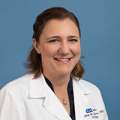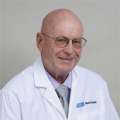Pediatric Urology Research
Research Pediatric Urology
The UCLA Department of Urology is committed to ongoing Pediatric Urology research in a quest to develop new treatments and cures for all urologic conditions, along with a commitment to educate and train the next generation of leading physicians and scientists.

Kathy Huen, MD, MPH
Dr. Huen is committed to advancing the care of adolescents and young adults with congenital genitourinary conditions, a population that often faces critical gaps during the transition from pediatric to adult care. With a Master of Public Health in Health Policy and Management from UCLA, Dr. Huen brings a systems-level perspective to her research, integrating principles of health policy, social determinants of health, and implementation science. Her work with national datasets and multi-institutional collaborators has revealed important disparities in care for individuals with spina bifida, particularly as they age into adulthood. She currently serves on the Transition and Adult Care Professional Advisory Council in the Spina Bifida Association, and is working with other institutions to examine which models of transitional care delivery are effective. She is also developing the transitional urology clinic at UCLA.
Dr. Huen is also a Senior Quality Officer for UCLA Health and the Quality Officer for the Department of Urology. She applies the Institute for Healthcare Improvement’s Model for Improvement to lead system-level quality initiatives. She has previously published on reducing preventable emergency department visits following urologic surgery, with an emphasis on improving patient flow. Through a combination of data analytics, qualitative interviews, and iterative Plan-Do-Study-Act cycles, Dr. Huen has spearheaded a patient-centered intervention to expand catheter self-irrigation teaching—significantly increasing intervention reach and reducing unnecessary ED utilization. Her work exemplifies the program’s mission to deliver the right care, at the right time, in the right place.

Renea Sturm, MD
Since being recruited to join UCLA Urology, Dr. Renea Sturm, Assistant Professor of Urology, has divided her time between seeing pediatric urology patients and building a collaborative translational research program. Dr. Sturm’s work as a basic and translational scientist is primarily focused on improving monitoring and treatment options for children with lower urinary tract conditions. As a surgeon-scientist with an interest in minimally invasive surgery, she is particularly motivated to apply basic science and technological advancements to improve equity, quality and consistency in surgical care for children across diverse healthcare settings.
Among the ways Dr. Sturm hopes to improve outcomes is through tissue engineering. In collaboration with researchers in bioengineering and chemical engineering at UCLA (Drs. Song Li and Nasim Annabi), Dr. Sturm is developing “bio-inspired” tissue within the lab, based on the mechanical, structural and biologic characteristics of the healthy urethra. As an inventor, Dr. Sturm is working with a research team at the Terasaki Institute (Dr. Khademhosseini) to also develop a biodegradable surgical repair device to minimize postoperative risks following complex lower urinary tract reconstructive procedures. This novel device distributes the wound tension across an incision to provide external support for tissue repairs, whether open or robotic. Such devices aim to allow children to improve consistent improvement in surgical outcomes, decrease the risk of technical complications and resume their normal activities faster after a surgery is performed.

Bernard Churchill, MD
Dr. Bernard Churchill, Professor Emeritus and founding director of Clark Morrison Children's Urological Center at UCLA, focused his research efforts in the area of pediatric urology. In particular, he collaborated with UCLA Human Genetics on a multi-institutional grant awarded by The National Institute of Child Health and Human Development for the establishment of a registry for Disorders of Sex Development (DSD). In addition to UCLA, this award involved multiple sites (University of Michigan, with Dr. David Sandberg, co-PI, UCSF and University of Washington, Seattle), and was the first to tackle the standardization of genetic, endocrine and imaging diagnosis of DSD, the investigation of psychosocial outcomes, and the delivery of best practices for the care of children and adults with DSD.